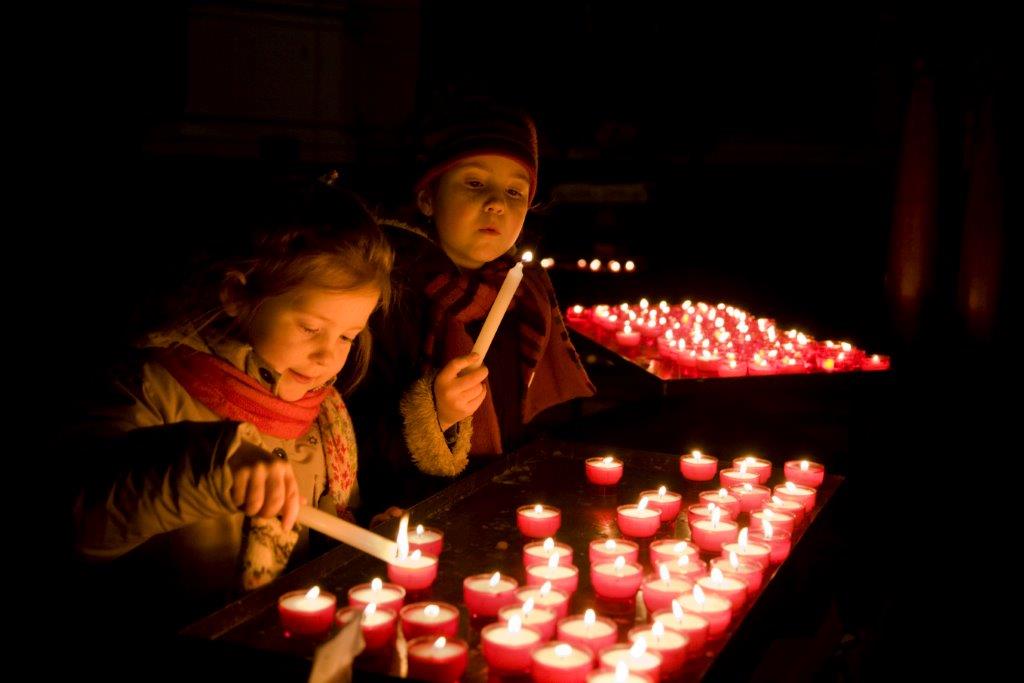
Religious education in the UK is a prime subject in secular schools, as well as church schools. Christian beliefs, doctrines and rituals are central, but teaching about other religions is also part of the syllabus, as well as reference to not having a religion at all. And some schools are allowed to teach other religions as their prime object – Judaism, Islam, Hinduism being examples.
The teaching of Religious Education can benefit from a variety of different experiences outside the classroom. Each religion has its own traditions and schools will have their own needs and wants in terms of relating each religion to the other. Teachers should be aware that religion and particularly places of worship can be sensitive and taking a large group of noisy children into such an environment will take plenty of forethought and planning.
Some ideas and tips for planning such trips include...
Before you go:
-
Make initial contact: find out if you can visit and when is the best time – both for you and the faith community concerned.
-
Preliminary visit: Try to visit the faith community yourself to explore learning opportunities and to discuss your needs with the person who will be involved in the visit. Share with him/her what you hope pupils will get out of the visit. Clearly planned aims help to fit the visit into a scheme of work. A general ‘look around’ is the least likely activity to be successful. If possible try to arrange for the pupils to meet some believers other than the ordained leaders. Talk about how long you will stay. As a rule of thumb, under an hour is usually too short to make the most of the learning opportunity.
-
Get parental permission: Schools should send a letter home with each pupil to make clear that this is an educational visit and that pupils will observe, not participate, in worship. Invite parents and other adults to help out on the visit.
-
Prepare pupils: It is likely to be a completely new situation for them. Provide guidance about appropriate attitudes and any dress requirements such as removing shoes, covering heads. Encourage pupils to ask and respond to questions during the visit. Talk over, in advance, questions they may wish to ask during the visit. Identify ways in which the visit will be followed up back in the classroom.
Some key points to remember when visiting faith communities:
- Dress: in addition to any specific requirements, modest dress is the usual guideline. Shoes are removed before entering the prayer rooms of the Mosque, Mandir, Gurdwara and Buddhist Vihara. Check specific requirements when organising the visit – the following are the usual practice: Mosque: Female: Head, legs, arms covered. Male: Heads covered during prayer time. Gurdwara: Female: Head and legs covered. Male: Head covering. No cigarettes to be taken into the Gurdwara.
-
Photographs: many places of worship will allow photographs to be taken at the appropriate time but prior permission should be sought.
-
Behaviour: normal good behaviour standards are appropriate. In all places of worship it would be disrespectful to chew, talk loudly, run around or touch things without invitation. In places where sitting on a carpeted floor is usual, it is disrespectful to sit with legs open facing the focal point e.g. a deity, a holy book, Qibla wall etc.
-
Hospitality: a number of places of worship will show hospitality to visitors by offering food or refreshment. It is important to prepare pupils for this: Hindu: prashad – this may take the form of crystal sugar, almonds, sweets or snack food. It is not sacred and should be accepted with thanks and eaten on the spot. Gurdwara: Kara prashad – a semi-solid cold food made from butter, semolina, sugar and milk, or a cup of tea boiled with milk. This is not a sacred food and should be accepted with thanks. Kara prashad can be kept for eating later.
- Donations: places of worship do not, as a rule, charge for visits, but a donation is recommended.
It is possible to arrange visits to local churches, chapels, mosques, temples and synagogues. Most of the cathedrals have education or visitor centres and resources for schools which can be viewed on their websites.
Main organisations:
The Religious Education Council (link is external)
National Association of Teachers of Religious Education (link is external)
Inclusion: NASEN (link is external)
Thought of visiting?
St Paul's Cathedral
York Minster
Tintern Abbey
Lindisfarne Island
Coventry Cathedral
Islamic Centre, Leicester
Brighton Buddhist Centre




